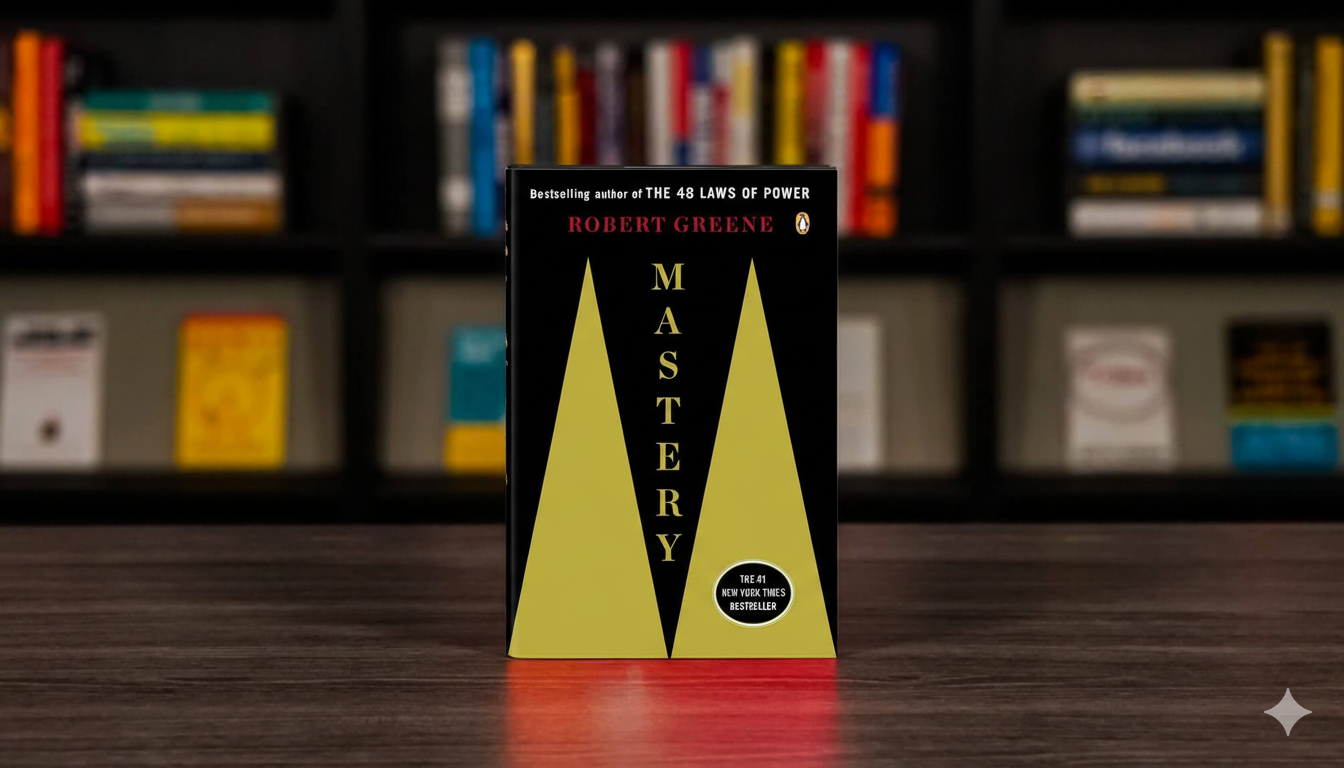We often marvel at individuals who achieve extraordinary things – a virtuoso musician, a groundbreaking scientist, an iconic artist. We might dismiss their success as innate talent or sheer luck. But what if there's a discernible path, a deliberate process that these masters follow, a journey that anyone can embark upon?
That's the powerful premise of Robert Greene's illuminating book, Mastery. Greene, renowned for his analyses of power and strategy, meticulously dissects the historical and psychological journey of masters across diverse fields, revealing that true mastery is not a mystical gift but a product of deep commitment, deliberate practice, and a profound connection to one's life's task.
The Illusion of Instant Genius
Greene debunks the myth of the overnight sensation. He shows that behind every "genius" lies years, often decades, of intense dedication, learning, and struggle. Mastery is a process, not an event. It's built incrementally, through phases that are common to all who achieve it.
"The way to acquire mastery," Greene writes, "is to first surrender to the subject, immerse yourself in it, and then slowly but surely, through practice, experiment, and dedication, learn its rules and how to bend them."
The Three Phases of Mastery
Greene outlines a clear, albeit challenging, three-phase journey:
1. The Apprenticeship (Deep Immersion): This is the foundational stage, often lasting many years. It's about deep learning, absorbing the rules, and developing fundamental skills.
- Goal: To learn the subject from the ground up, internalizing its conventions.
- Mindset: Humility, observation, patience, and a willingness to accept feedback and correction from mentors. You're learning the "language" of your field.
- Danger: Impatience, thinking you know more than you do, jumping to advanced concepts prematurely.
2. The Creative-Active Phase (Experimentation and Rebellion): Once the fundamentals are internalized, the master-in-training begins to experiment. They question the rules, combine ideas in novel ways, and start to find their own voice.
- Goal: To break free from conventional thinking, to innovate, and to carve out a unique style.
- Mindset: Confident exploration, challenging assumptions, embracing trial and error, a thirst for making connections between seemingly disparate ideas.
- Danger: Getting lost in experimentation without a solid foundation, or fearing to challenge established norms.
3. Mastery (Intuitive Flow and Vision): This is the pinnacle, where understanding becomes intuitive. The master operates with effortless grace, solving problems with insight, and often creating entirely new paradigms. Their knowledge is so deep that they can innovate seemingly on instinct
- Goal: To operate with supreme competence, to see the whole picture, and to influence the field itself.
- Mindset: Calm confidence, profound empathy for the material, a natural inclination to mentor others, and a constant drive for deeper understanding.
- Danger: Resting on laurels, becoming complacent, losing touch with the beginner's mind.
Your Life's Task: The Driving Force
Central to Greene's philosophy is the concept of "Your Life's Task." This is the deep, innate inclination, curiosity, or passion that you felt in your early years. It's the unique impulse that draws you to a particular subject or skill. Discovering and aligning your work with this inner calling is what provides the unwavering motivation needed to endure the long, demanding path to mastery.
"The greatest mistake is to imagine that you are always working for someone else," Greene warns. "You are always a master in the making. Every task, however small, is part of your apprenticeship."
The Call to Deep Work
Mastery is not a quick fix; it's a roadmap for a lifelong journey. It calls for deep work, persistent effort, and a profound respect for the process. If you aspire to true excellence in any field, this book offers a compelling blueprint for understanding the path, avoiding the pitfalls, and ultimately realizing your fullest potential. It's a reminder that genuine genius is not born, but meticulously built.
